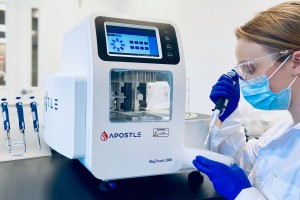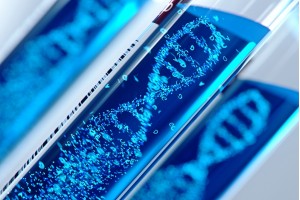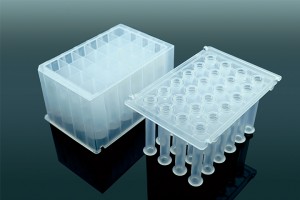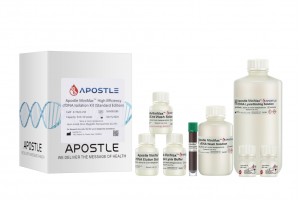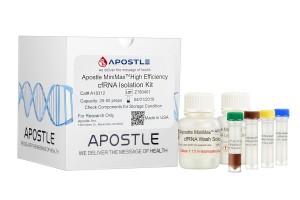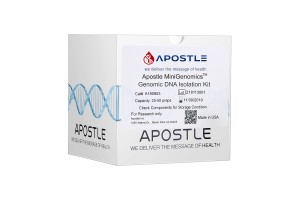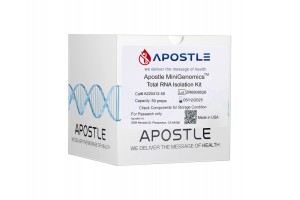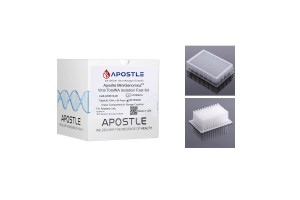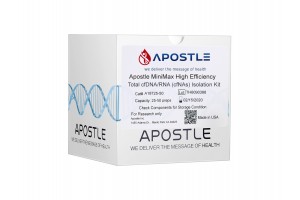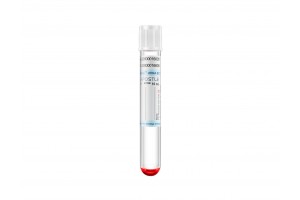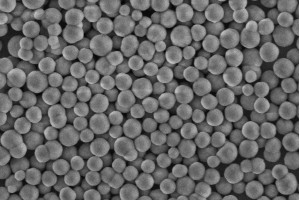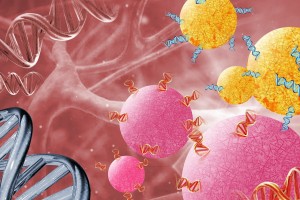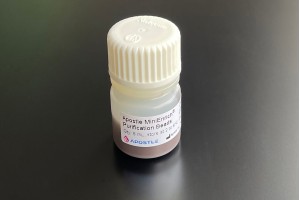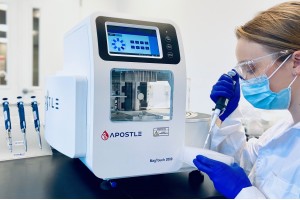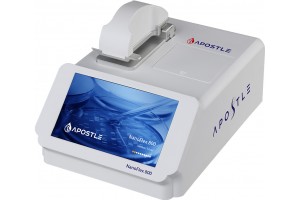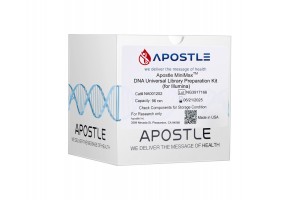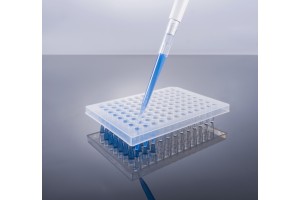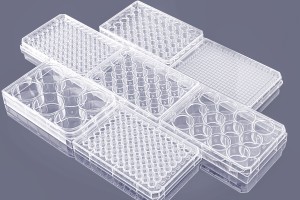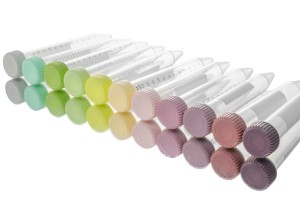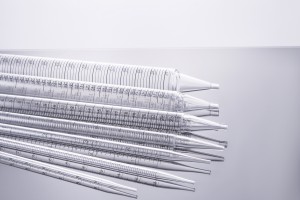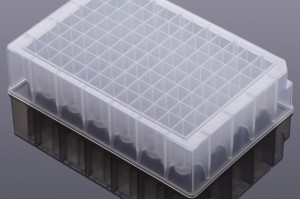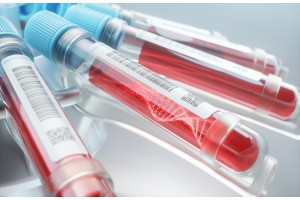-
Promotion
Special Promotion
-
Products
Sectors
Categories
Product Information
- How to order
- [Catalog] 2024 May (PDF)
- [Flyer] MiniMax: Best-in-class gDNA/cfDNA Isolation Technology (PDF)
- [Flyer] MagTouch 3000: World 1st Large-Volume Fully-Automated cfDNA Extractor (PDF)
- [Flyer] Best-in-Class total-RNA/cfRNA Isolation Technology (PDF)
- [Flyer] Cost-efficient & High-quality Laboratory Consumables (PDF)
- [Flyer] RNA Isolation Solution (PDF)
-
Technology
- Apostle MiniMax Technology
- Apostle MiniMax (cfRNA)
- Apostle MagTouch Technology
- Apostle BCT Technology
- Apostle MiniEnrich Technology
- Apostle MiniGenomics Technology
- Apostle Triton Technology
- Apostle MiniMax (Type S)
- Apostle Viral RNA/DNA Isolation Automation System
- Apostle Well Plates and Accessories for Nucleic Acids Isolation
- Applications
- Sign In
All
- All
- Featured Products
- Spring 2024 Promotion
- All Reagents
- cfDNA Isolation Kits & Reagents
- cfDNA Isolation Kits
- cfDNA Isolation Reagents - Kit Component
- Short Fragment Enrichment Kits
- Total cfDNA/RNA Isolation Kits
- cfRNA Isolation Kits
- cfRNA Isolation Kits
- Total cfDNA/RNA Isolation Kits
- Genomic DNA Isolation Kits
- Viral/Pathogen NA Isolation Kits
- Total RNA Isolation Kits
- Magnetic Nanoparticles
- Purification & Size Selection
- cfDNA Blood Collection Tubes
- NGS-related
- All Instruments
- Nucleic Acid Extraction Automation
- Spectrophotometer + Fluorometer
- Viral DNA/RNA Isolation Automation
- All Consumables
- cfDNA Blood Collection Tubes
- Cell Biology Supplies
- Cell Culture Dishes
- Cell Culture Flasks
- Cell Culture Plates
- Deep Plates & Tip Combs
- Tubes & Vials
- Conical Centrifuge Tubes
- Safe-lock Centrifuge Tubes
- Cryogenic Storage Vials
- Histology, Cytology & Pathology Supplies
- PCR Supplies
- Protein Biology Supplies
- ELISA-related Supplies
- Western Blotting-related Supplies
- Serological Pipets
- Universal Pipet Tips
- Non-Filtered Pipet Tips
- Filtered Pipet Tips
- Gel-loading Pipet Tips
- Laboratory & Other Services
- cfDNA / cfRNA Isolation Services
- Maintenance & Repair Services
- Clinical Laboratory & CRO Services
0 item(s) - $0.00
0
-
Your shopping cart is empty!


